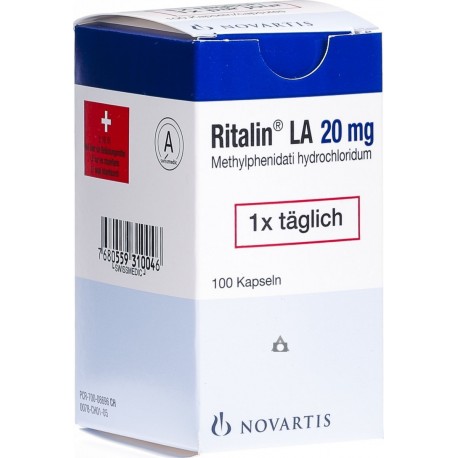
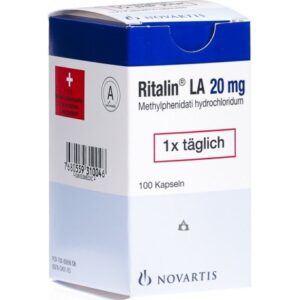
Buy Ritalin 100x 20mg Online
From $226.86
- Reference: #Ritalin-20mg
- Active substance: Ritalin Methylphenidate
- Manufacturer / Brand: Novartis Pharma GmbH
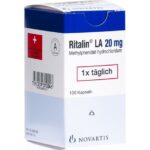
Buy Ritalin 100x 20mg Online
From $226.86
- Description
- Additional information
- Reviews (0)
Description
Introduction: Ritalin, manufactured by Novartis Pharma GmbH, features Methylphenidate as its active substance. It stands as a crucial medication in the treatment of attention deficit hyperactivity disorder (ADHD) and narcolepsy. This comprehensive overview explores the history, mechanism of action, therapeutic applications, administration, potential side effects, and considerations associated with Ritalin Methylphenidate.
I. History: Methylphenidate, synthesized in the mid-20th century, gained recognition for its stimulant properties and therapeutic potential in ADHD and narcolepsy. Ritalin, formulated with Methylphenidate, has since become one of the most prescribed medications for ADHD worldwide.
II. Mechanism of Action: Methylphenidate acts primarily by blocking the reuptake of dopamine and norepinephrine, neurotransmitters involved in attention, focus, and impulse control. By increasing the levels of these neurotransmitters in the brain, Ritalin enhances cognitive function and reduces hyperactivity and impulsivity in individuals with ADHD.
III. Therapeutic Applications: Ritalin Methylphenidate is employed in the treatment of:
- Attention Deficit Hyperactivity Disorder (ADHD): It is a cornerstone therapy for ADHD, helping individuals improve attention span, concentration, and impulse control, thereby enhancing academic and social functioning.
- Narcolepsy: Methylphenidate may also be used off-label in the management of narcolepsy, a sleep disorder characterized by excessive daytime sleepiness and sudden episodes of sleep.
IV. Administration and Dosage: Ritalin Methylphenidate is typically administered orally in tablet form, with dosages tailored to individual needs, severity of symptoms, and response to treatment. The dosage may vary depending on factors such as age, weight, and comorbid conditions.
V. Potential Side Effects: While generally well-tolerated, Ritalin Methylphenidate may cause side effects, including:
- Insomnia: Stimulant medications like Ritalin may disrupt sleep patterns, leading to difficulty falling asleep or staying asleep.
- Decreased Appetite: Some individuals may experience appetite suppression or weight loss as a side effect of Methylphenidate therapy.
- Irritability or Mood Changes: In rare cases, Ritalin may exacerbate irritability or mood swings, particularly in individuals with underlying mood disorders.
VI. Considerations and Monitoring:
- Regular Monitoring: Close medical supervision is essential during Ritalin therapy to monitor for potential side effects, assess treatment response, and adjust dosages as needed.
VII. Conclusion: Ritalin Methylphenidate remains a cornerstone in the management of ADHD and narcolepsy, offering individuals the opportunity to improve focus, attention, and impulse control. Its well-established efficacy, coupled with ongoing research efforts, underscores its pivotal role in enhancing outcomes and quality of life for individuals affected by these conditions. As research continues to advance, Ritalin stands at the forefront of efforts to optimize treatment approaches and address the complex needs of individuals with ADHD and narcolepsy.
Additional information
| Quantity | 1, 5 |
|---|
Be the first to review “Buy Ritalin 100x 20mg Online” Cancel reply
Related Products

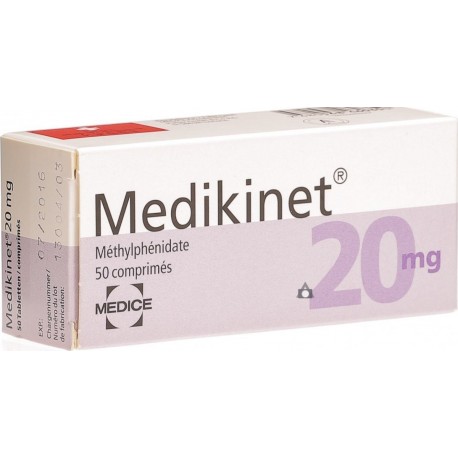
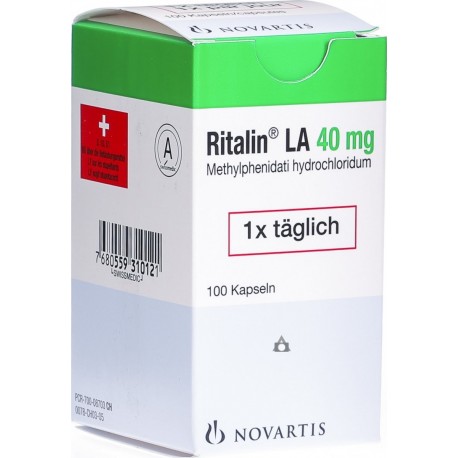



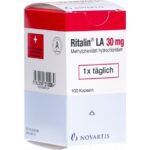
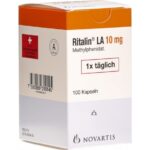
Reviews
There are no reviews yet.